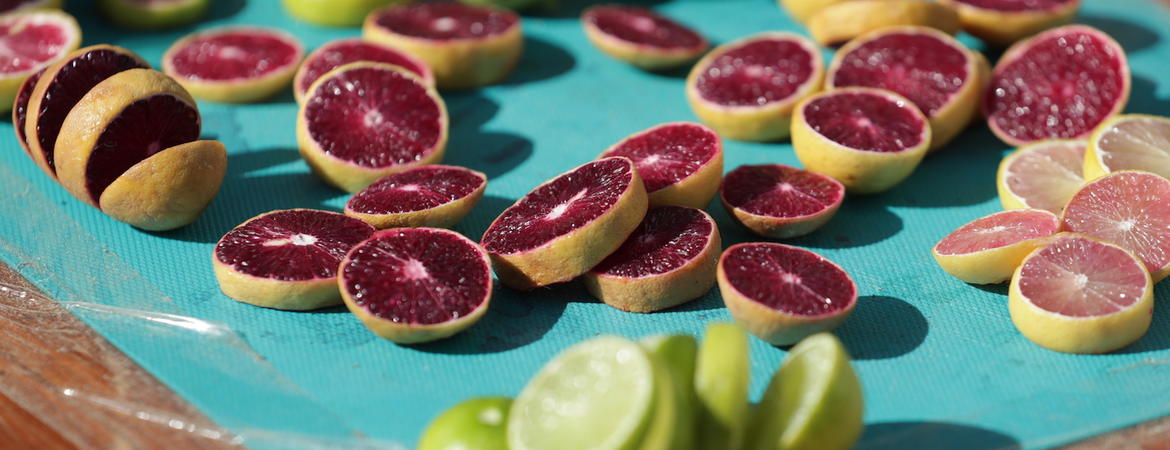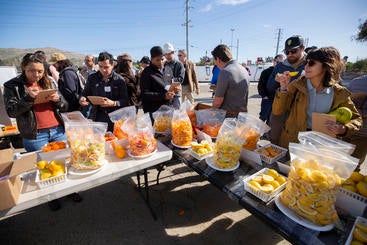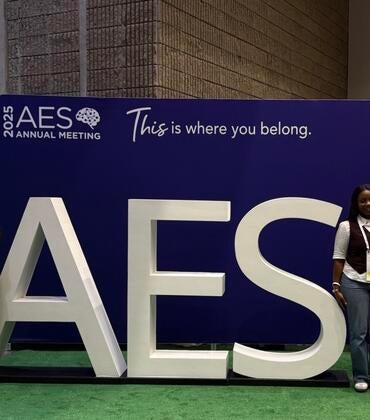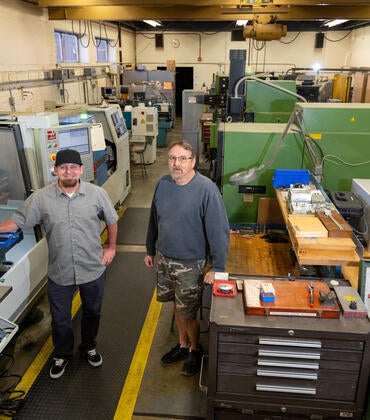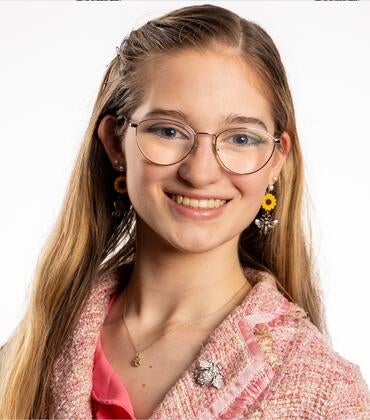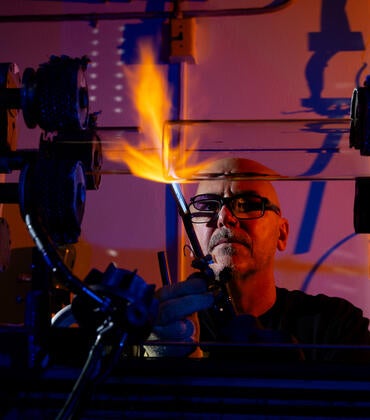The message at UC Riverside’s Citrus Day for the Industry event was clear: Huanglongbing poses an existential threat to California citrus growers but the defenses are holding and scientists will find better weapons.
Over 200 people from the citrus industry and UC Riverside gathered on a windy January day to hear experts talk about the current status of the citrus disease Huanglongbing and the tiny flying insect that spreads it, Asian citrus psyllid.
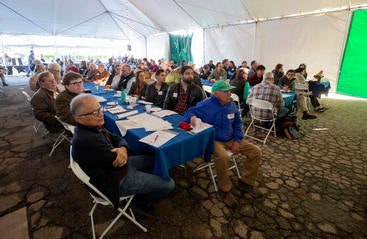
Asian citrus psyllid carries bacteria called Candidatus liberibacter asiaticus, abbreviated CLas, that enters plants when the insect feeds on them. The bacteria result in small, misshapen and unripe fruit with no commercial value and eventually kill the tree. The disease is known by its Chinese name, huanglongbing, or HLB. Asian citrus psyllid arrived in San Diego and Imperial counties in 2008 after decimating citrus crops in China, Brazil, and Florida. It moved steadily north, appearing in Riverside County in 2010, and by 2019 had been observed in almost every county between San Diego and Sacramento.
Victoria Hornbaker, the director of the citrus pest and disease prevention division of the California Department of Food and Agriculture, or CDFA, told the crowd that Asian citrus psyllid has been detected in 26 counties but that tarping bulk citrus during transport and strict procedures for growing nursery stock, along with regional quarantines, have so far prevented HLB from becoming well established in commercial groves. Orange County, the epicenter for HLB in California, and Riverside, where HLB has also been detected, are both under quarantine. Eradication has also been effective in some areas— nine counties have had no Asian citrus psyllid detections for two years.
Backyard citrus is another story. The majority of HLB infections are in residential citrus. The CDFA conducts a trapping program to detect the insects and determine their range, conducts residential surveys for the insect and HLB, and treats backyard trees in infected areas with pesticides.
Any tree that tests positive for CLas must be removed. Even if a CLas-positive tree does not show symptoms of HLB it can transmit the bacteria to an uninfected Asian citrus psyllid during feeding, and the psyllid can, in turn, transmit the bacteria to another tree. Hornbaker said that anyone worried that their tree might have HLB should call their county agricultural commissioner or the state hotline (1-800-491-1899).
But new treatments based on the citrus microbiome might soon put citrus growers on the offensive. Carolyn Roper, an associate professor of plant pathology at UC Riverside, has been studying bacteria that are naturally part of the microbial flora living in and on citrus trees and discovered that one of them, cladosporol, kills the CLas bacteria. She recently received permits for conducting trials of three cladosporol variants on CLas-positive trees in UC Riverside’s new biocontainment level 3 citrus research facility.
Monique Rivera, an assistant extension specialist and plant pathologist, studies the symbiotic relationship between invasive Argentinian ants and Asian citrus psyllid, which excretes a sweet substance the ants like to eat. The ants tend the psyllids and Rivera is exploring ways to manage the ant population in order to reduce the psyllid population.
Beth Grafton Cardwell, the director of the Lindcove Research and Extension Center and a research entomologist at UC Riverside, gave an inspiring keynote address that took the audience through her long journey pioneering integrated pest management in California. Integrated pest management uses a combination of means to combat agricultural pests to reduce pesticide use and keep pest populations at levels that cause no economic damage.
Fourth-generation citrus nursery owner Aaron Dillon said, “Beth has been a constant.”
He had to relocate the nursery from its former location in Fremont to Watsonville to lessen the disease pressure. Like all citrus nursery owners, he has to follow strict rules, including growing the trees in screenhouses to keep out Asian citrus psyllids.
“I come to events like this to learn. This is what my grandfather and father always did,” he said. “We’ve had to completely change how we do things. UCR has been a huge help.”
Dennis Jensen, owner of a 750-acre citrus farm in the Coachella Valley, said that UC Riverside is a great resource and had special praise for Tracy Kahn, the curator and endowed chair of UC Riverside’s Givaudan Citrus Variety Collection, and Peggy Mauck, the director of agricultural operations at UC Riverside and a subtropical horticulture specialist with UC Cooperative Extension.
“I can take pictures and send them to Tracy or Peggy. As soon as something shows up I can ask them,” he said. Kahn and Mauck have also done educational demonstrations at his groves.
The day concluded with an opportunity to taste and rate 29 new citrus varieties developed at UC Riverside, some of which are HLB-resistant, and a demonstration by dogs that can detect CLas-positive trees by scent.
